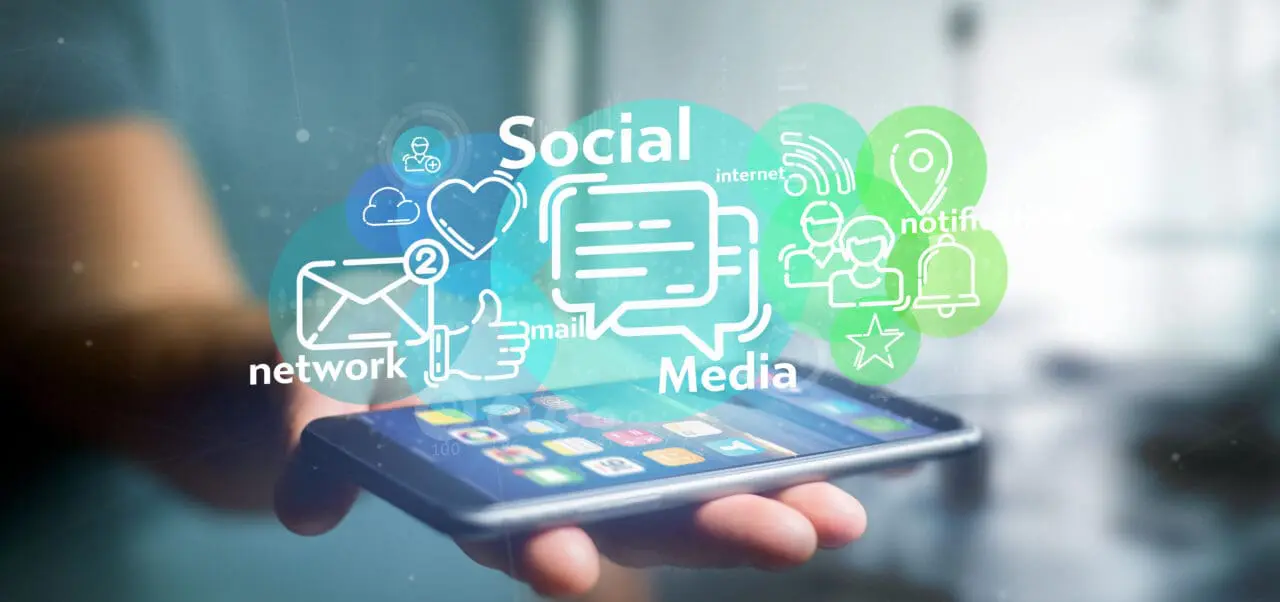

As social media platforms become more popular for young people, it’s important to be aware of the dangers of social media addiction and how we can tackle it. With TikTok announcing new features for teens and families, including a 60-minute daily screen time limit, we look at the issue of social media addiction and ideas for tackling it.
We need to understand that too much use of social media can lead to unhealthy relationships with technology which can have an immense impact on our mental health. Spending too much time online is linked to depression, anxiety, sleep deprivation and decreased academic performance — all things no one wants for themselves or their children.
While social media use is becoming increasingly common and many people use it regularly, technically, not all individuals experience addictive behaviours or negative consequences as a result of their social media use.
The extent to which social media use can become addictive or harmful may depend on a variety of factors, including individual differences in personality, social context, and patterns of use. Some people may be more prone to addictive behaviours or may use social media in a way that interferes with other aspects of their life, while others may use social media in a more balanced and healthy way.
The most important step in tackling social media addiction is recognising the signs that it’s becoming a problem. It can be difficult to tell when someone has developed an unhealthy relationship with technology, but there are some key warning signs that you should pay attention to:
– Neglecting other activities and hobbies in favour of being online
– Becoming irritable or agitated when unable to access the internet
– Feeling anxious or depressed after using social media for extended periods of time
– Having difficulty sleeping due to staying up too late on social media
– Lying about how much time they spend online
If you notice these behaviours in yourself or someone else, then it may be time to take action.
Once you have recognised that social media addiction is a problem, the next step is finding ways to tackle it. Here are some ideas that can help:
– Set Limits: One of the most effective measures against social media addiction is setting limits and sticking to them. If you feel yourself slipping into unhealthy online habits, try restricting your social media usage to specific times each day or week. Setting a timer can also be helpful — when the timer runs out, log off and do something else with your free time.
– Seek Professional Help: If you find yourself unable to control your social media use on your own, don’t hesitate to seek professional help. There are many resources available to those struggling with social media addiction, and speaking to a therapist can be invaluable in taking back control of your life.
– Take Breaks: Taking regular breaks from social media is essential for maintaining mental wellbeing. Turn off push notifications, delete the apps from your phone, or take an extended break from technology altogether if you feel like it’s getting out of hand. You might also find it beneficial to replace your social media time with other activities such as reading books, going on walks, or engaging in hobbies that don’t involve screens.
Social media can be a wonderful way to stay connected with friends and family, but it’s important to remember that too much of anything isn’t good. By recognising the signs of social media addiction and taking action, we can make sure that our online activity remains healthy and enjoyable.
In conclusion, social media addiction can be a serious issue that needs to be addressed. By recognising the warning signs and taking steps to manage our digital lives, we can ensure that our relationships with technology remain healthy and enjoyable. With new features from TikTok making it easier than ever to monitor screen time, now is the perfect time to take control of your digital life!
This website uses cookies to improve your experience. Choose what you're happy with.
Required for the site to function and can't be switched off.
Help us improve the website. Turn on if you agree.
Used for ads and personalisation. Turn on if you agree.
This website uses cookies to improve your experience. Choose what you're happy with.
Required for the site to function and can't be switched off.
Help us improve the website. Turn on if you agree.
Used for ads and personalisation. Turn on if you agree.